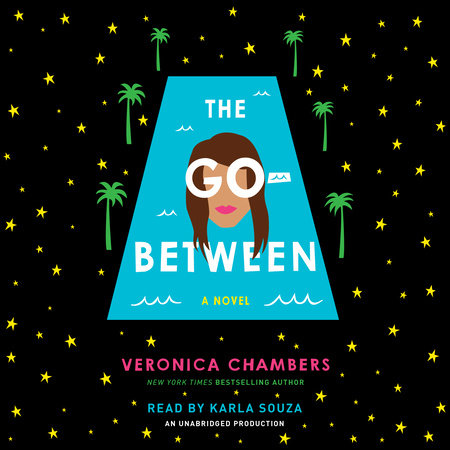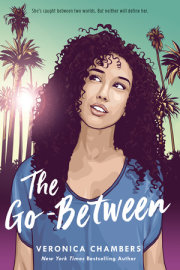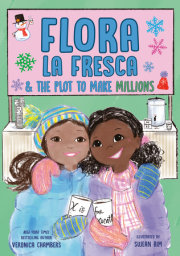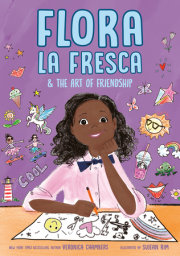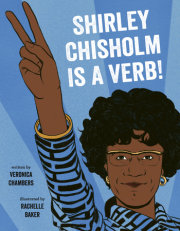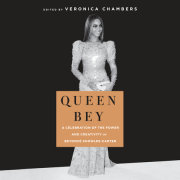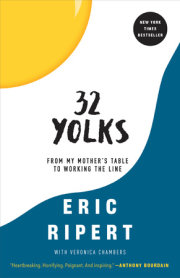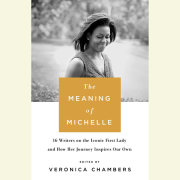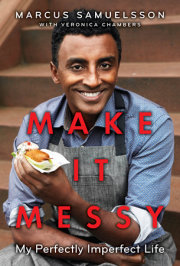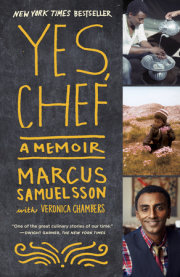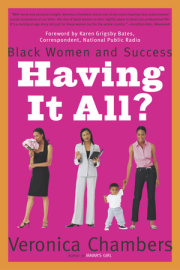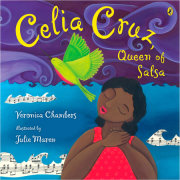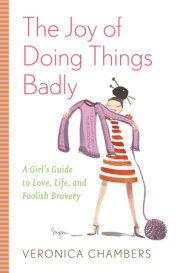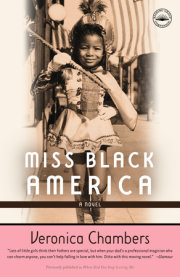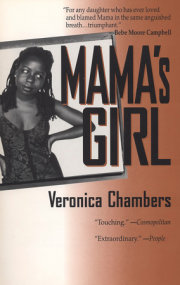1
A Mexican Fairy Tale
My mother, María Carolina Josefina del Valle y Calderón, was cast in her first telenovela when she was just a few years older than I am now. She was eighteen when she was cast as Bianca in Mundos sin Fronteras, a telenovela about a mission in Alta California in the early 1800s. In the series, she aged twenty years in twelve months. Viewers loved the story of a poor Mexican woman who moves to Alta California, the northernmost region of California when it was still part of Mexico and considered the Wild, Wild West. In those times, and in the TV show, because the region was so sparsely populated, women were allowed to own property, and a handful became very rich. My mother’s character evolved over the course of the telenovela from a humble but drop-dead-gorgeous (of course) cattle hand to the wife of an older, cold, and abusive ranch owner, and then to an independent widow who runs a prosperous business. Finally, in her thirties, she married for love. Do I sound like I know the whole thing by heart? Does it sound predictable? Who cares. My mom was a hit. I’ve seen it about thirty times.
Mexican TV viewers have always loved this genre of telenovela, romance histórico, or historical romance. But Mundos sin Fronteras became--unintentionally, my mother says--a feminist touch point, igniting a spirit of independence in women that was unprecedented. Millions of viewers tuned in to watch the show, and from the first episode until the last, the series set ratings records that are unbroken to this day.
When my mother got depressed--although not often, it was still, for me, too often--she lay on the couch and watched videos of Princess Diana. Cocooned in her favorite silk robe, my mother, Carolina, started off with the Charles and Diana wedding video. It was a video I’d seen so often, I could recite the archbishop of Canterbury’s lines by heart: “Here is the stuff of which fairy tales are made. The prince and princess on their wedding day.” Then she cycled through Diana’s life, the fashion evolution and the red carpet, her meeting with Michael Jackson, her friendship with Elton John. She was bawling by the time Diana became a mother the first time, then the second time.
At this point, because my mother had called in sick, the phone was ringing off the hook. But my mother wouldn’t be distracted by such pettiness, because now we were deep into the footage of Diana the activist. By the time we got to Diana the land mines activist, my mother had dried her tears. It was a catharsis, this viewing, and like Diana, my mother had put aside her grief and private heartbreaks in search of something more meaningful.
What chilled me, and my father, and my brother when he is back home, was the last round of videos. It was always an array of videos about Princess Diana and the paparazzi, leading to Diana’s tragic death. I didn’t know anyone who’d ever ridden in a car with a celebrity while SUVs filled with photographers and TV crews raced you down a highway and through tunnels who could watch that footage and not feel the fear. It was like a police chase on steroids, all for a stupid photo.
For as long as I could remember, people had been taking my mother’s picture. It tapered off over time. I was very young when she first became truly famous, and sometimes it seemed more like a movie I saw than something I lived, the little girl turning in to the folds of her mother’s dress so that the cameras that pop, pop, popped with their lights and their long lenses didn’t get a picture of her face. There used to be dozens of photographers at all times back then, and sometimes when my mother went out shopping or to lunch with a friend, they would surround the car so that it couldn’t move. Even after my father hired full-time security, a guard for each of us, the paparazzi were always there yelling to my mother: “Bella, bella, guapa, guapa, mira aquí.” Beautiful. Gorgeous. Look over here.
When she wasn’t sad and feeling a kinship to the Princess of Wales, my mother told us stories about how early on, when she first became famous, she allowed her relatives to sell “exclusives” to the tabloids. “That’s how all my primos bought their houses,” she said. “If those papers are going to make money off me, then it’s only right that mi gente gets to eat too.”
My mother had been famous for so long that photos of her were no longer such a “get.” There were, however, always four or five stalwarts staked out at our house and at the studio where my mother shot her novelas. The minute our huge black car rolled down the long driveway and the giant gates that stood like sentinels opened, you could hear the photographers--the clicks of their cameras rapid like machine guns.
Now everyone had a camera in their phone, which meant it wasn’t just the pros who grabbed photos of my mother. When we went out to a restaurant, you could see the people who were pretending to be looking at their phone but were actually snapping her pic.
What this meant was that my mother had to be camera ready at all times. Her glam squad--Andy, who did her hair, and Regina, who does her makeup--practically lived at our house.
I loved them. Andy not only did hair, but he made the most amazing jewelry. He made a necklace for my quinceañera. It was a gold disc meant to be the moon, with my star sign drawn in tiny diamond specks. Regina was a great person. I loved her impression of my mom!
The thing about telenovela culture was, it was all about bigger is better. Shoulder-length hair wasn’t good enough. Your hair had to be Rapunzel-long, for when the wind machines get going. It was ultra-dramatic. The dresses were tight, the heels were high, and the makeup was two ticks away from being drag-queen-worthy. My mom did it well. She was considered the best telenovela actress in Mexico because no one could out-bombshell her.
For me, my mother without makeup was . . . beautiful. It was like she was a superhero in reverse. Her beauty was only revealed when she took the mask off.
But as famous as my mom was, the person I always worshipped is my father, Reinaldo. It didn’t hurt that he voiced Buzz Lightyear in the Spanish-language version of Toy Story. He did the job years before I was born, one of his first big breaks. But when I was a kid, the movie seemed to me entirely brand-new and as larger-than-life as its makers intended. I remember at five or six being genuinely shocked that the voice that grumbled “Buenos días” to me each morning and told me bedtime stories each night was also on my TV. I wondered how it could be that my father was a superhero toy astronaut who came to life the minute all the kids left the room. For a year, I insisted he whisper “Al infinito . . . y más allá!”--“To infinity . . . and beyond!”--to me instead of the typical “sueños dulces” or “sweet dreams.” And in first grade, for my mother’s annual Día de los Muertos party, my father dressed up as Buzz Lightyear. I was dressed up as Jessie, with a costume handmade by the best seamstresses at TexCoco, the big studio in Mexico City where my mother shot all her telenovelas. I also had a bright red wig made of real human hair, fashioned by my mother’s favorite wigmaker.
My parents were good at their jobs, so we lived in this amazing house--ten bedrooms, fourteen bathrooms, a pool, a tennis court, a guesthouse, a greenhouse, the works. We also had a massive staff. There was Alberta, who we called Albita, our live-in housekeeper, who had been with our family since I was a baby. Albita was tall and thin, with long black hair that she wore wrapped on the top of her head in a ballet bun. She didn’t actually clean our house; she was more like the house manager. There were Irma and Cristina, who did most of the cleaning and shopping.
Diana was my mother’s yoga teacher, who doubled as an organic chef. She cooked all my mother’s lunches, and her dinner too when my mother was on a diet, which was any day that ended in a y. My father liked more traditional Mexican meals that Albita made herself.
Albita used to be a high school track star. My older brother, Sergio, always said Alberta was too fit to be just a housekeeper. He thought she was undercover security. There were three guys who worked as our official security and drivers. In Mexico, if you’ve got money, kidnapping is always a fear. Every year, hundreds of people in Mexico are kidnapped for ransom. Sometimes even when the families pay, the kidnappers kill the captured person anyway. I didn’t know anyone who had been kidnapped, but Sergio did. As did my parents, though they rarely talked about it. I grew up just knowing that it could happen and that our drivers were more than security; they were our lifelines. They lived in an apartment above the garage, and they took turns sleeping in the guest bedroom on the first floor of our house. We were never alone.
So Raul--tall, ripped, with a neck the size of a tree trunk--guarded my mother and drove her wherever she needed to go. Juan Manuel, a former martial arts champ, drove my father to his sets and gave Papá lessons in everything from kickboxing to kali, the art of stick fighting. My guy was Samir; he was young and good-looking. He could’ve been a telenovela star himself. He drove me back and forth to school in a bulletproof car.
“You should be on TV,” I would tell him, trying to flirt. “You should quit this job and become an actor.”
He would laugh and say, “To be an actor, I’d have to have talent.”
I’d shrug and insist, “You could take lessons. I bet the camera would love you.”
He’d shake his head and say, “No way, Camilla. I’m too shy.” And then he’d turn to driving. My heart would melt in ten seconds flat like a cupcake that you put in a microwave too long. I mean, is there anything better, sweeter, than a guy who looks like a prince who tells you that he is shy? But obviously he knew, as I did, that he was a member of my parents’ staff and only that.
Sometimes after school when Samir drove me to the mall so I could shop and hang out with my friends, I would beg him to let me sit in the front, next to him. He never allowed it.
“I’ve got protocols, Camilla,” he would say, shaking his head.
Sergio once saw me flirting with Samir and warned me to stop. “You think it’s a game,” he said. “But this is his livelihood. If Mom or Dad thought that any of the staff were behaving inappropriately, they’d be fired--without any references. You’d not only make him lose his job, but hurt his ability to find another. So go flirt with one of those pencil-neck losers at your school, Cammi. Pick on someone your own age.”
Even when I don’t like to hear it, Sergio is my moral conscience. He’s the best thing that ever happened to this family, and we all agree--my mother, my father, and me. I’m not being sarcastic. Some people are so good that they almost seem to have a halo above their head. That’s Sergio. My mother said that before I was born, she thought he would become a vet because every wounded animal Sergio could find, from three-legged cats to birds with broken wings, were brought home for him to tend and heal.
My father said that by junior high school, Sergio was such a devoted reader of the Bible and other religious texts that my father thought he might become a priest or a religious scholar. Sergio was patient with me, until I got older--I could see him trying to mold my mind.
“Mama, you should buy her books that make her think. Her brain will atrophy,” Sergio pleaded with my mother one time.
“When I was her age . . . ,” my mother began.
Sergio smiled and said, “I know, Mama. There was no money for books or anything else. We know how lucky we are. Could you please let me order some reading for her?”
My mother reached into her purse and handed my brother a credit card. “Order some books online. And no pornos for yourself. I will be watching the bills.”
Andy and Regina laughed as my brother blushed. But he took the card and kissed my mother on the cheek, and just a few days later, the treats began to arrive. The Secret Garden. Little Women. And my favorite, the Nancy Drew series. It was like Christmas had come early. From the age of eight, I fell in love with detective stories, and I knew that while my parents loved me, my brother was my guardian angel. He saw me and looked out for me in ways that nobody else did. It was like I was one of those little creatures in his pet hospital. He would not let harm come to me before I could fly on my own.
The year I turned ten, Sergio went away to boarding school in England. It was, my parents explained, at his teachers’ behest. Even the best schools in Mexico City were not challenging enough for my big brother. He was, at sixteen, already fluent in Spanish, English, and French. A good English boarding school would set him up for a good European university, and that, my father explained, would set Sergio up for life. I cried for days before he left, and even though he reassured me again and again “I am always with you” and tried to get me to read science fiction books about teleportation, I didn’t believe him and didn’t care. I was convinced the world was a dark place without Sergio nearby, and in some ways, everything I will tell you and everything that happens boils down to this. I am now sixteen, exactly the age Sergio was when he went away to school. I understand that he had to go. I stand here, on the brink of my own big leap; I am sympathetic to how scary it must have been to start a new life in a new country. But let me tell you a little bit more about the past before I get to the present.
Copyright © 2017 by Veronica Chambers. All rights reserved. No part of this excerpt may be reproduced or reprinted without permission in writing from the publisher.

